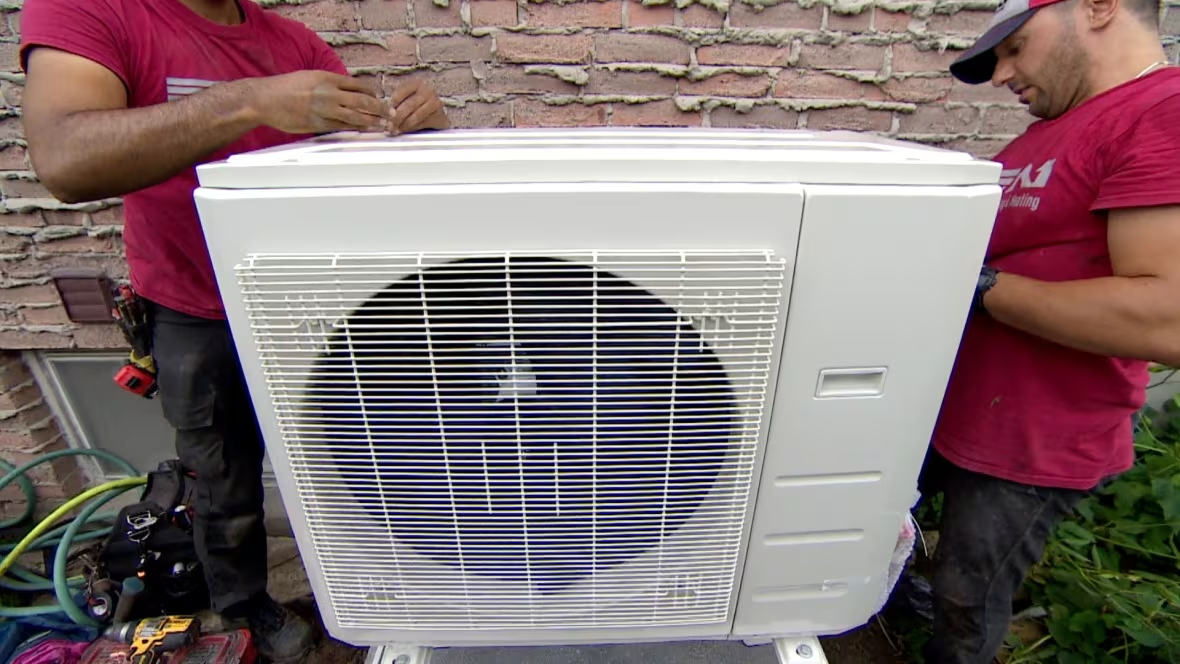Higgs says Holt is distancing herself from Trudeau on carbon tax
Premier says N.B. Liberal leader’s criticism of carbon price is political, given PM's unpopularity

Premier Blaine Higgs says he welcomes his Liberal opponent's new criticism of the federal Liberal carbon tax but he doesn't take it very seriously.
Last Friday, Susan Holt said she was open to joining Higgs to "go and talk to the federal government about adjusting" the tax, which is adding 14.3 cents to the price of a litre of unleaded regular gasoline this year.
Holt's criticism of a policy developed by the Trudeau Liberals, who have many volunteers and supporters in common with her provincial party, came after Higgs blamed the tax for the high cost of living.
In an interview Monday, the premier dismissed her comments, saying the shared goal should be scrapping the tax completely.

He also described Holt's comments as political opportunism, given Prime Minister Justin Trudeau's sinking popularity.
"That's progress from where she has been on the file," Higgs told CBC News. "I can appreciate that she's trying to stay in a zone that doesn't connect as closely as she is to Trudeau.
"She's trying to land the plane where there is a runway."
The federal carbon tax was introduced in 2019 and took effect briefly in New Brunswick before Higgs brought in his own version. He abandoned that model in July, leading Ottawa to re-impose its system.
The pricing system is designed to give people an incentive at the point of purchase to consume less greenhouse gas-emitting gasoline and natural gas.
The federal version includes quarterly rebates of $92 for a single person and $184 for a family of four. Next year, rural residents will start getting a 10 per cent top-up, including a retroactive one for this year.
Last week, Higgs called the tax "the major issue driving inflation," though Statistics Canada figures show it only contributed 0.1 percentage points to September's 3.8 per cent annualized inflation rate.
Holt slammed the Higgs government's throne speech last week for not including any new measures designed to help people cope with the high cost of living.
But after the premier responded by goading her to join him in a lobbying effort to have the tax scrapped, Holt conceded she has objections to the tax, too.
"It doesn't reflect our reality, so I think it needs to change in a way that is a policy properly developed for the people of New Brunswick and our realities," she said Friday.
Change of heart
In 2018, Holt, then a Liberal candidate, said she favoured the provincial carbon tax proposal by then-premier Brian Gallant.
It would have used accounting sleight-of-hand to leave consumers paying no extra tax at the gas pump.
That was contrary to the requirements of the national policy and Ottawa rejected the plan.
Higgs came up with his own version, which complied by taxing consumers at the federally required rate but used the revenue to fund environmental projects and cuts to both income and gas taxes.
Holt said in a tweet in 2022, when running for the Liberal leadership, that the Higgs version "should continue," but that "its level, application and how the funds it generates are spent should be reviewed."

She said in an interview Monday that this should involve increasing the rural top-up beyond 10 per cent, to recognize that people living in those areas don't have the option of public transit or cycling to get to work.
"My position on this has been consistent. We need a carbon program that recognizes New Brunswick's reality," she said.
But Holt said it was "a good question" whether all the carbon tax revenue should be rebated or whether some of it should be spent subsidizing the transition away from fossil fuels.
She said it was also "a good question" whether rebates to urban residents should be reduced so that rural rebates can be increased.
Regardless, Higgs says Holt's offer to collaborate with him on federal lobbying doesn't go far enough because it would leave the tax in place for no good reason.
"If you can't validate what it's achieving other than to add to the affordability concerns of every New Brunswicker, get rid of the thing," he said.
A better way to help people emit less is to spent money on programs like the provincial heat pump program, he said, installing units that help residents consume less electricity to heat their homes.


